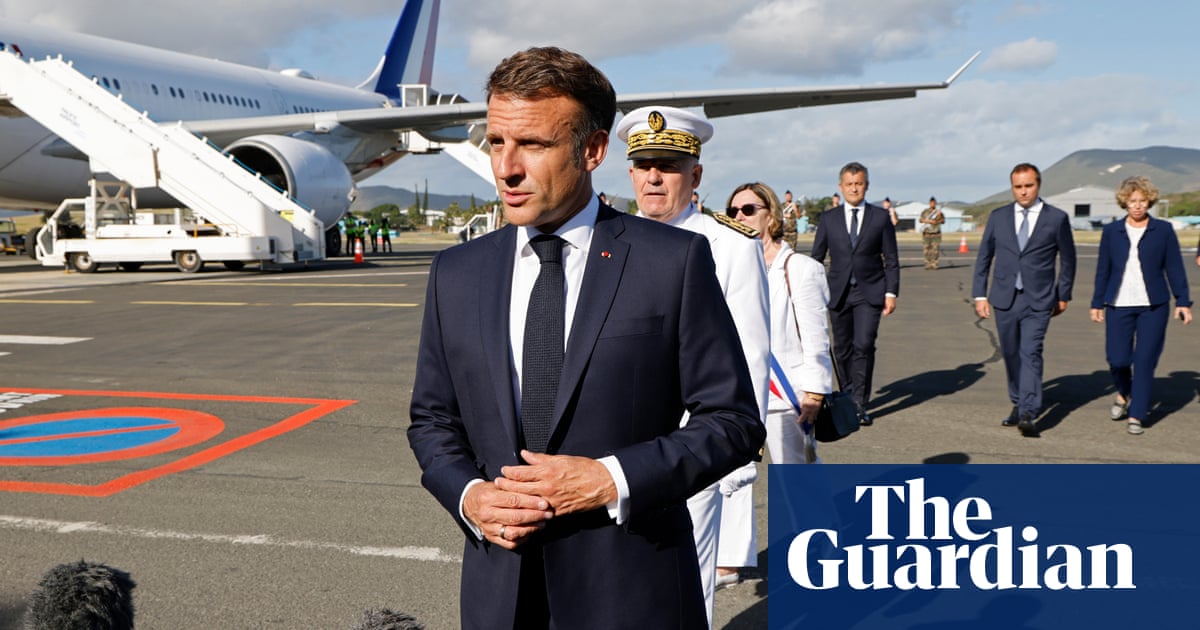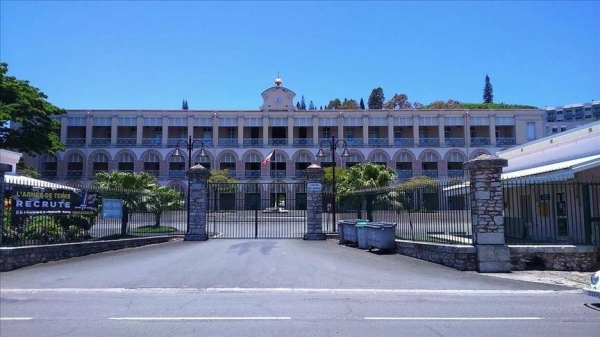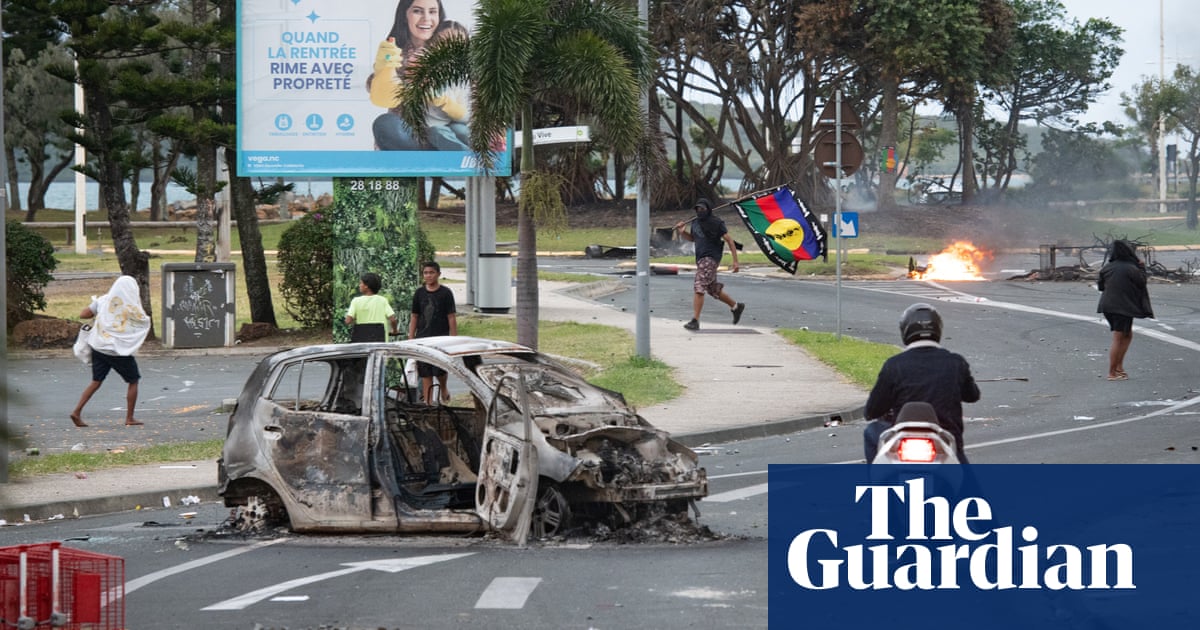
The French president, Emmanuel Macron, has arrived in New Caledonia in an urgent attempt to calm tensions in the French Pacific territory, after more than a week of riots, which have left six dead.
The unrest was sparked by anger among Indigenous Kanak people over constitutional changes backed by Paris that would give voting rights to tens of thousands of non-Indigenous residents. Local leaders fear the change will dilute the Kanak vote and undermine longstanding efforts to secure independence.
Macron, who briefly spoke to reporters after his arrival at La Tontouta International Airport, about 50 kilometres (31 miles) from the New Caledonian capital of Noumea, said he viewed a return to calm as the top priority.
“My wish, along with that of my ministers and the government, is to be alongside the people and see a return to peace, calm and security as soon as possible,” he said.
Macron will meet elected officials and local representatives on Thursday for a day of talks focused on politics and on the reconstruction of the territory, aides said. The French prime minister, Gabriel Attal, said the president would “re-establish dialogue” and prepare the “reconstruction”.
However, Macron’s visit has provoked mixed reactions among local politicians.
“It’s a staging. The format is not right,” said Roch Wamytan, an independence leader of the Caledonian Union and president of the Congress of New Caledonia.
“The question we are asking is ‘Will the constitutional revision text be withdrawn to clear the way for in-depth discussions?’” Wamytan said.
“Here comes the fireman after he set the fire!” Jimmy Naouna, from the Front de Libération Nationale Kanak et Socialiste of New Caledonia, wrote on X in response to news of Macron’s visit.
Mike, an activist stationed at a roadblock, said: “He [Macron] has to come. Because parliament is starting to turn against him. That’s why he’s coming. This reform needs to be removed. That law needs to go. If we want peace here in Kanaky, it has to be removed.”
Sonia Backès, a prominent pro-France figure and president of New Caledonia’s South Province said Macron’s visit was “a strong sign of his willingness to find solutions, first on public order and justice, then politically”.
Virginie Ruffenach, a local politician and anti-independence leader, said the state “has an important role to play and has a lot of help to offer in this catastrophic situation”.
A large part of the population, across political lines, feel growing resentment towards their leaders.
“We ended up here because of the politicians, whether they are independence supporters or not,” said one 40-year-old Caledonian. “They take us for pawns. They say we need to get back to the negotiating table, but where is this table?”
The Pacific territory of 270,000 people has been in turmoil since 13 May, the worst violence seen there in 40 years.
Nearly 400 public buildings, businesses, shops and homes have been destroyed by fires set by rioters in just over a week, according to public prosecutor Yves Dupas.
There is significant damage to roads, making access and travel in parts of New Caledonia difficult. The main road connecting Nouméa to Tontouta international airport Nouméa to the airport remains damaged and blockaded, preventing access. Many secondary roads are still not secure, particularly those leading to the main hospital.
Damaged roads are obstructing the supply of food, fuel and other goods to the population. Residents are having to wait several hours to purchase essential goods, and items are being rationed. The closure of banks and the destruction of many ATMs have made it difficult to obtain cash, which is widely used in the archipelago.
The residents who spoke to the Guardian did not want to be named, for fear they may be targeted.
“There are young people causing trouble all night, gunshots all night. It doesn’t stop. We have been cloistered at home since Tuesday. It’s a lawless area,” said a resident of Logicoop, a particularly hard-hit neighbourhood in Nouméa.
Another resident from Logicoop felt safer but feared a police presence could stir unrest in the neighbourhood.
“We were a little scared the first two days when they started burning everything around. Today, we feel relatively safe in the neighbourhood. Things are going well between the different communities, and there is a lot of mutual aid. We haven’t seen a single police officer since the beginning, and we’re afraid things will heat up when they arrive,” the resident said.












